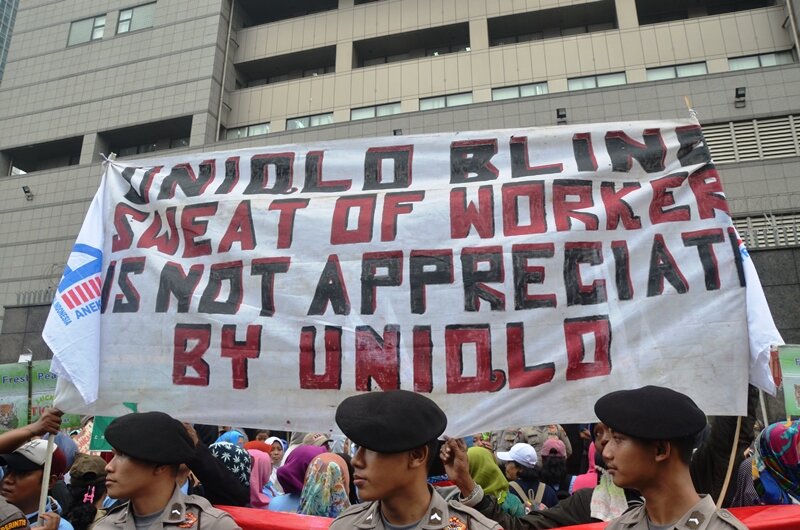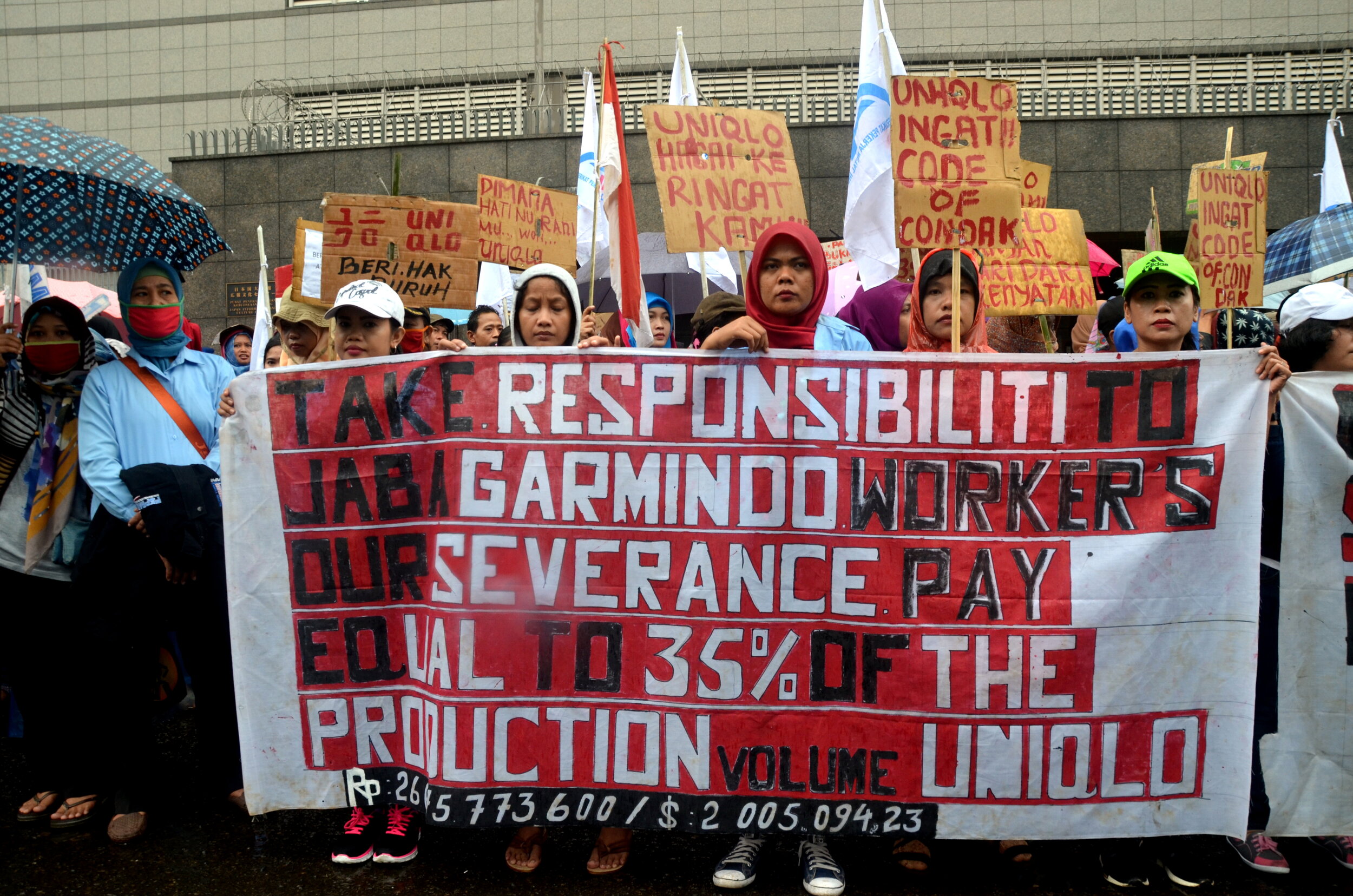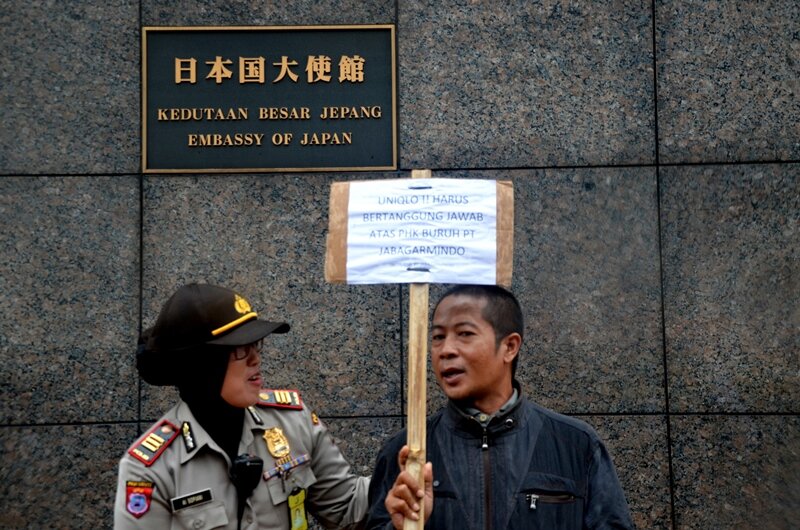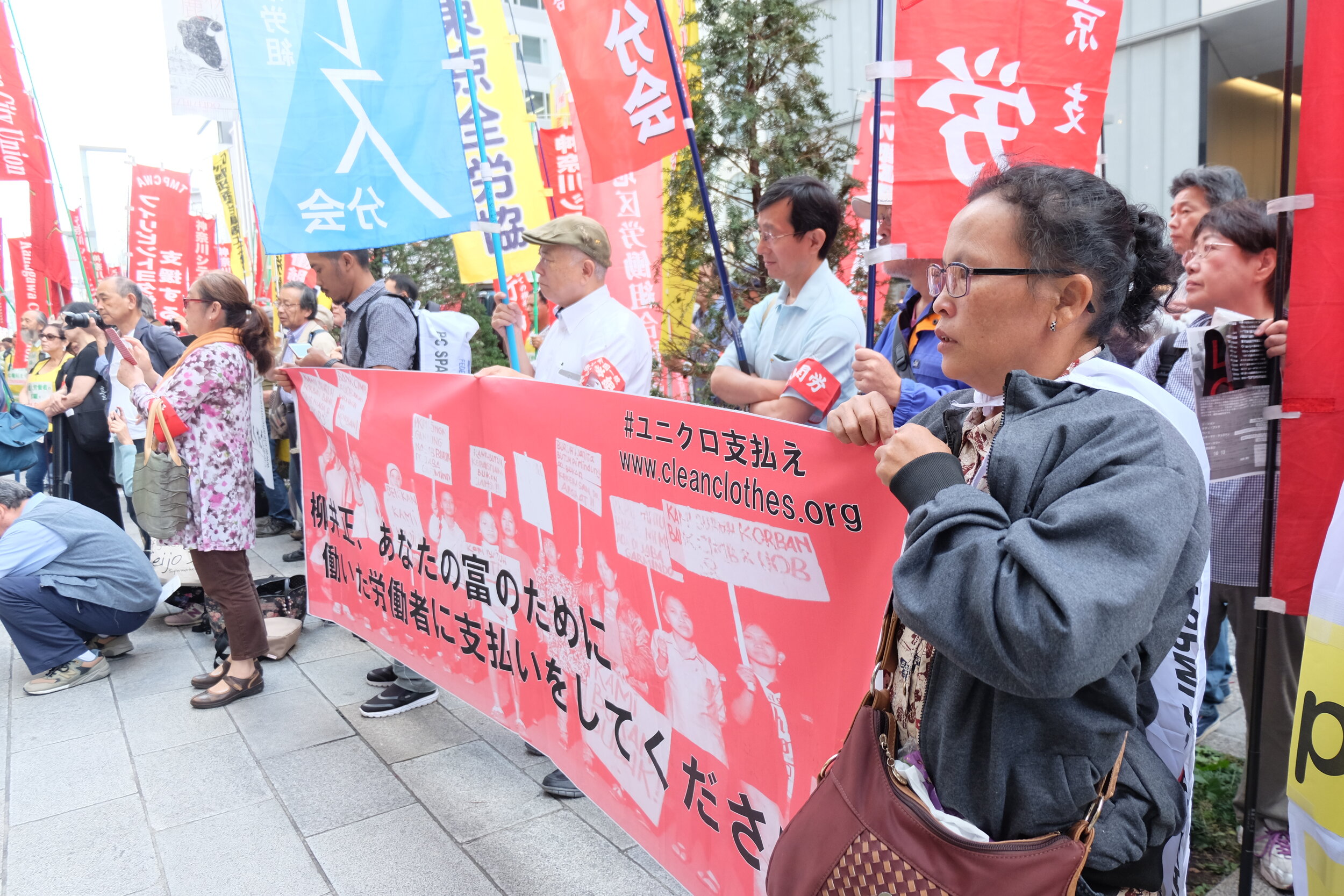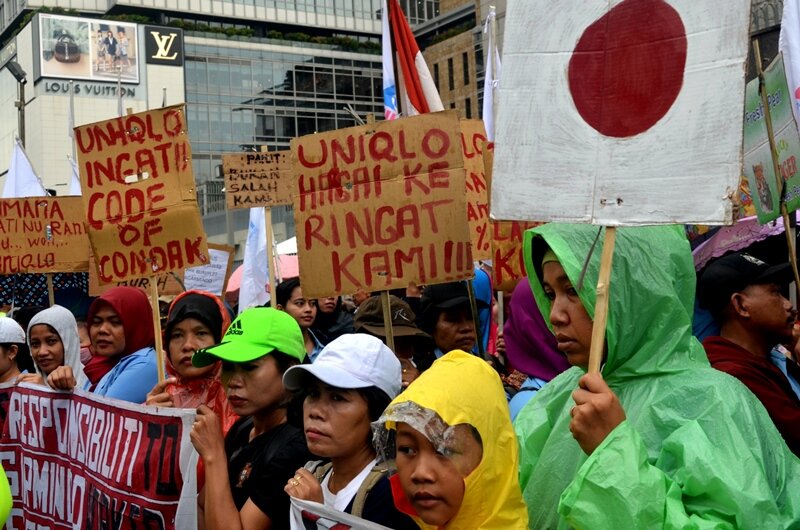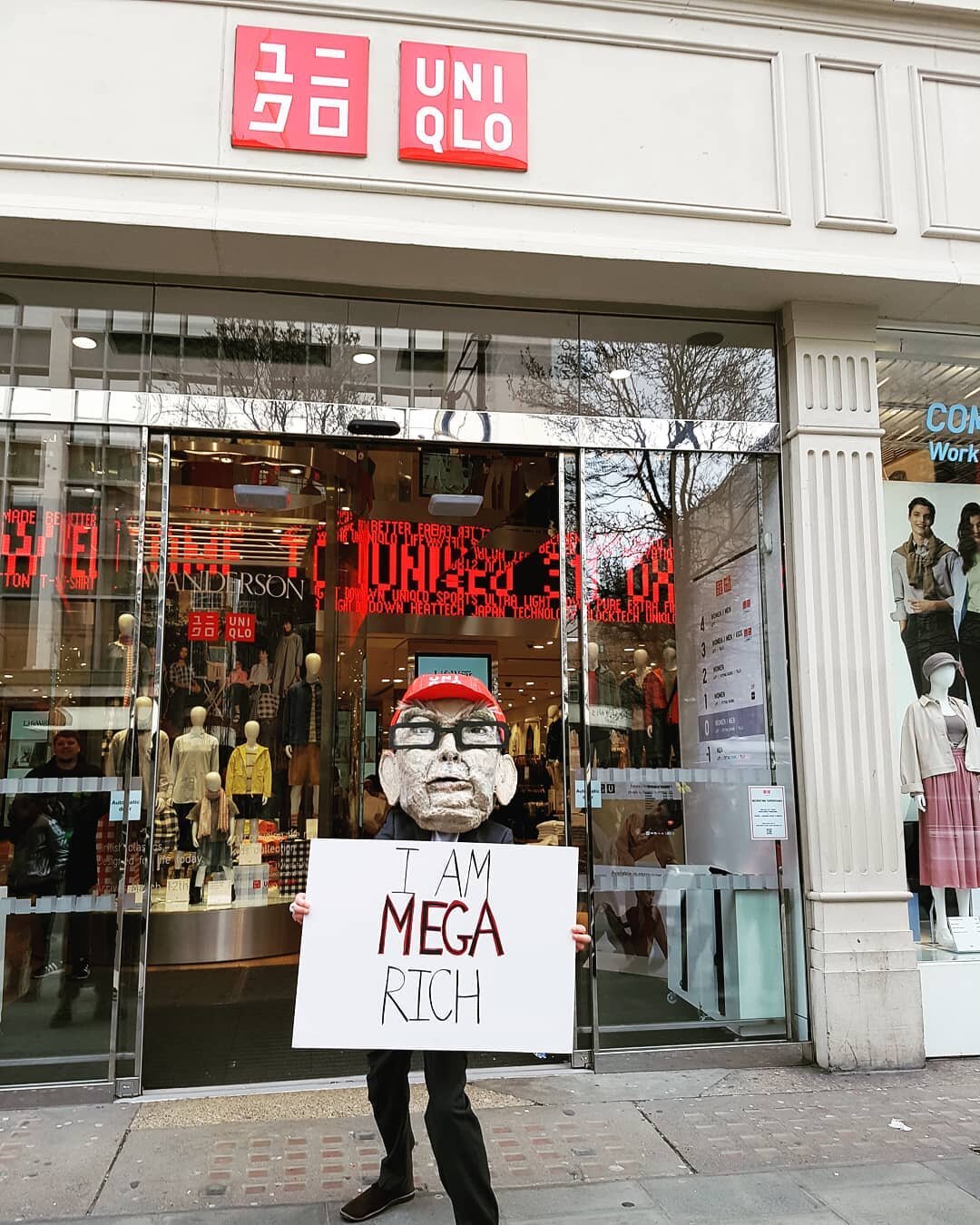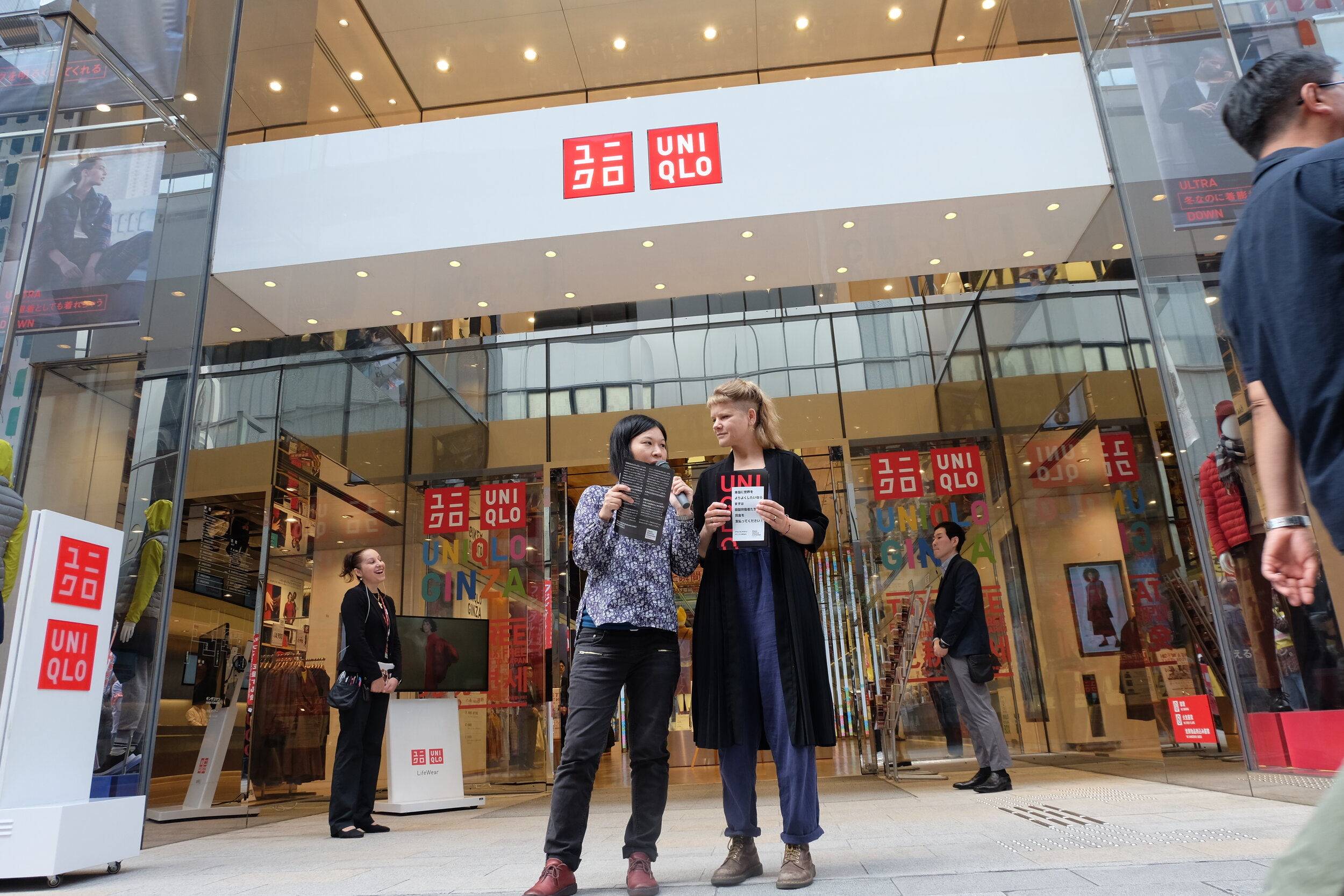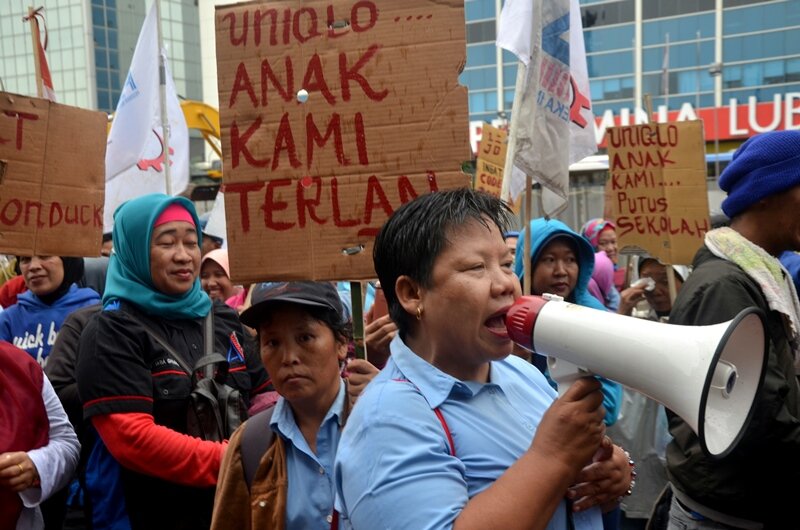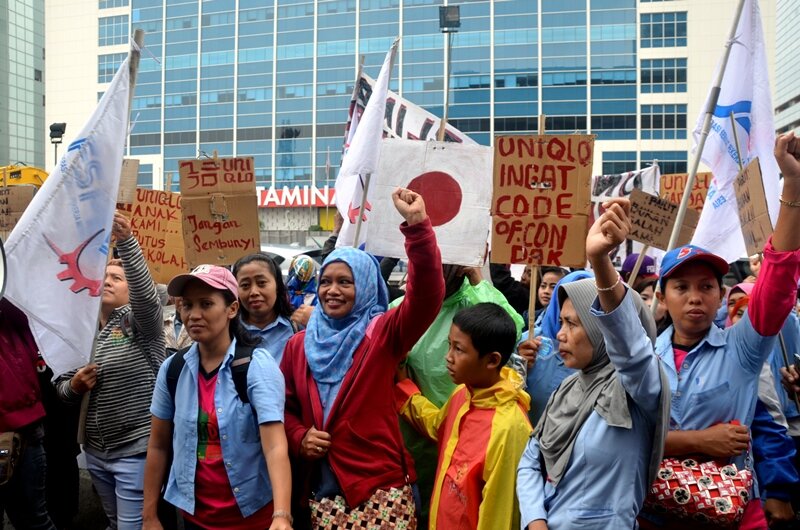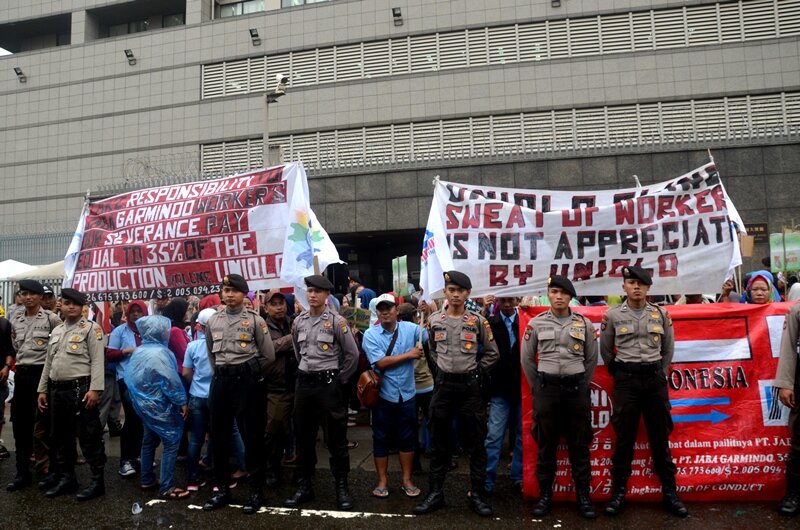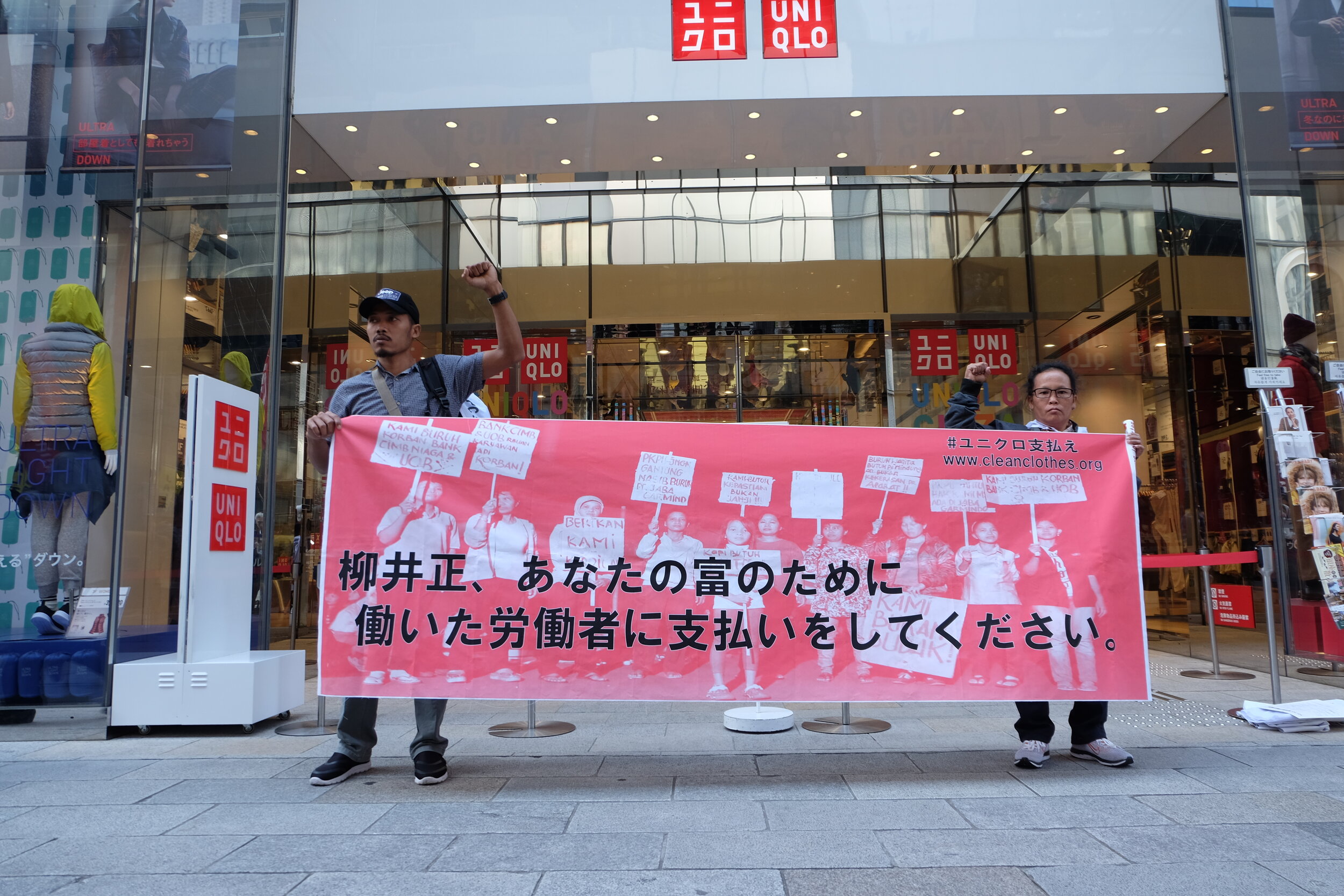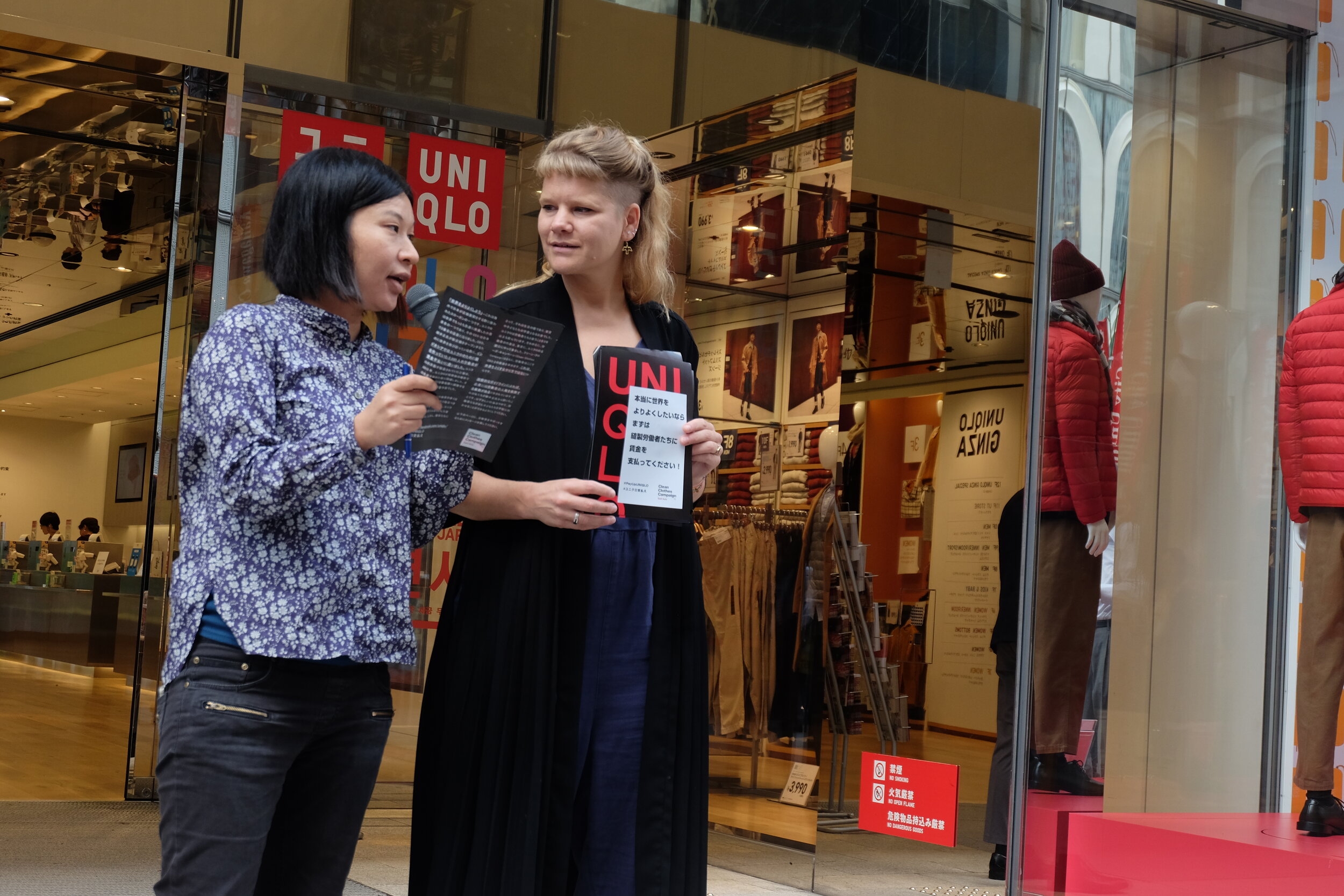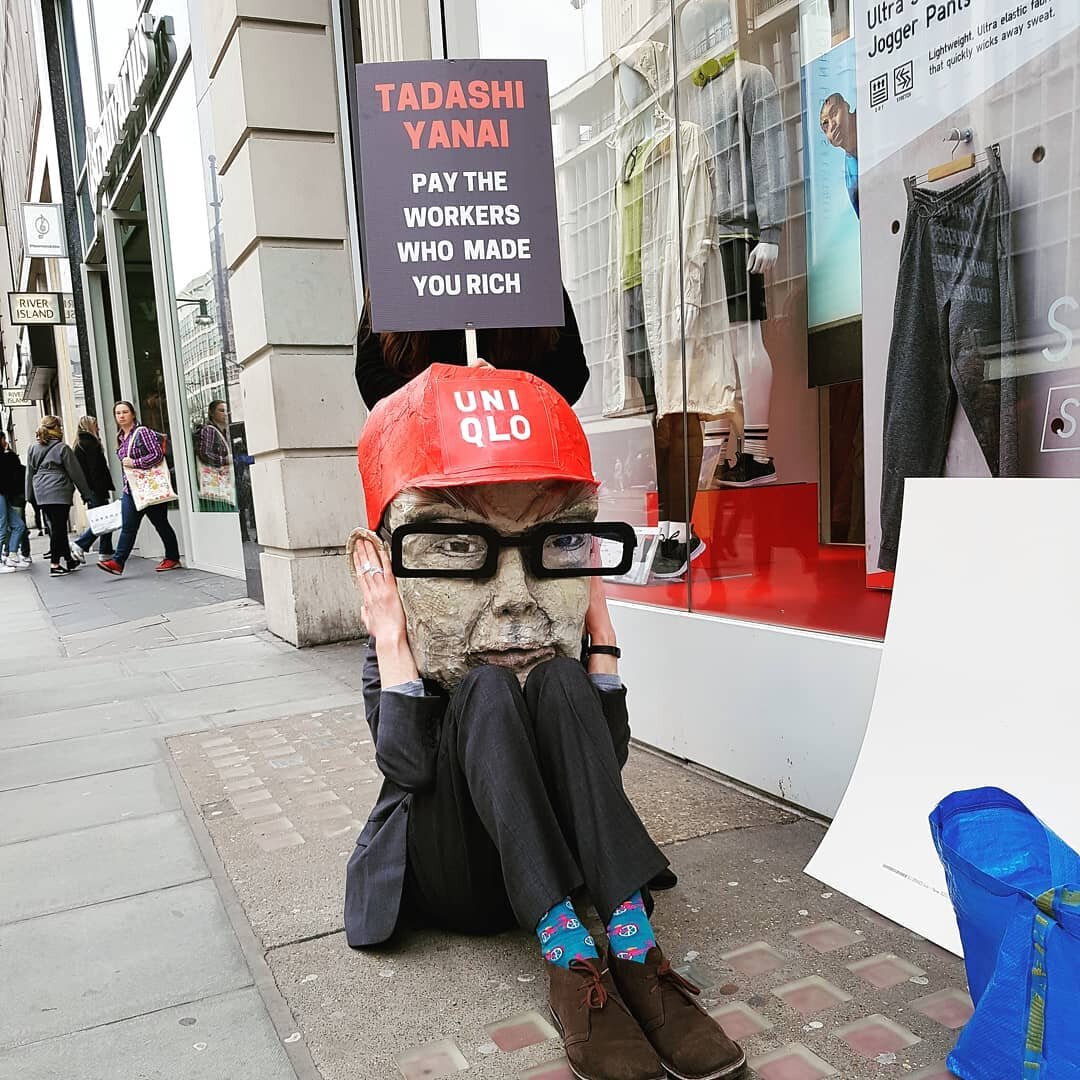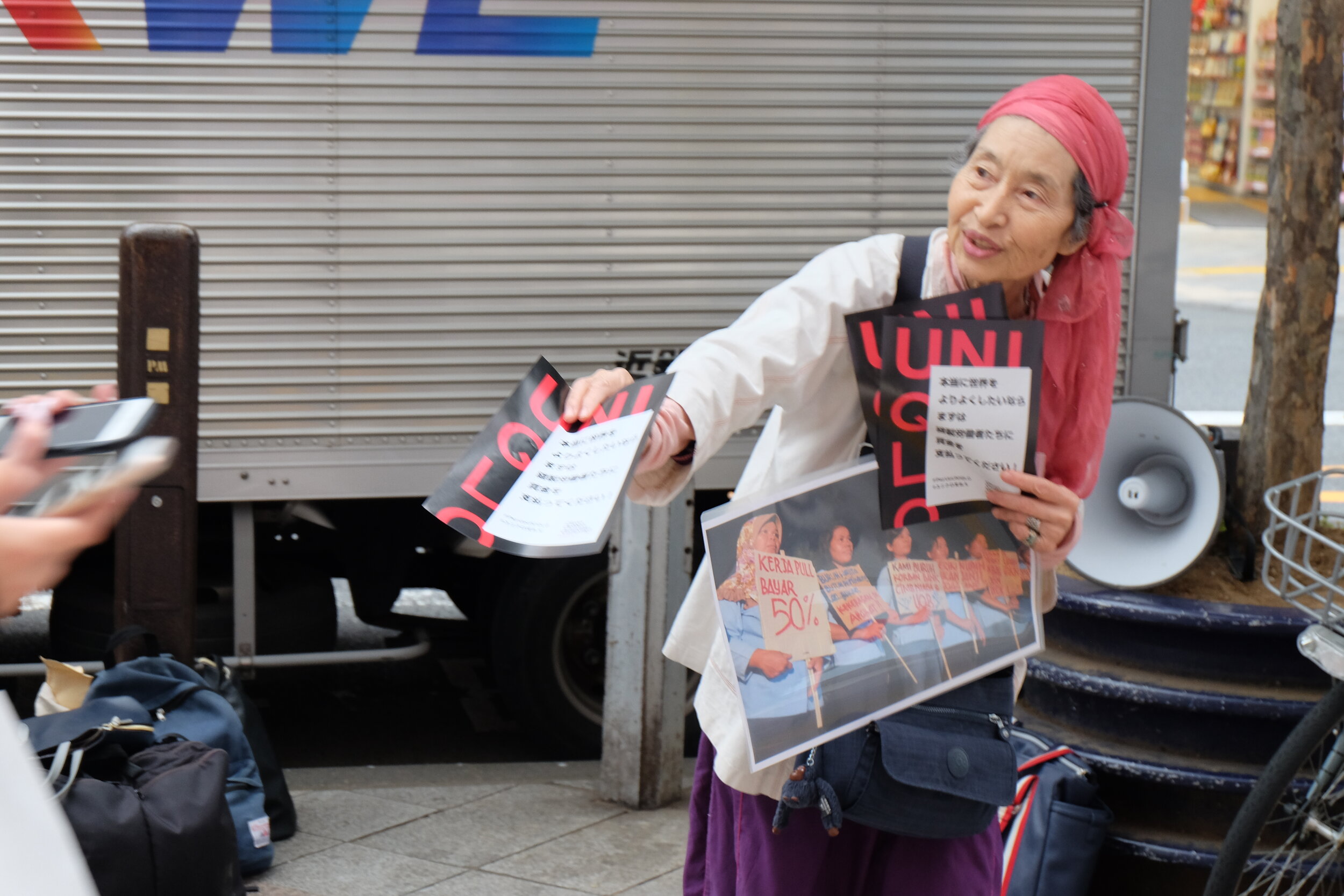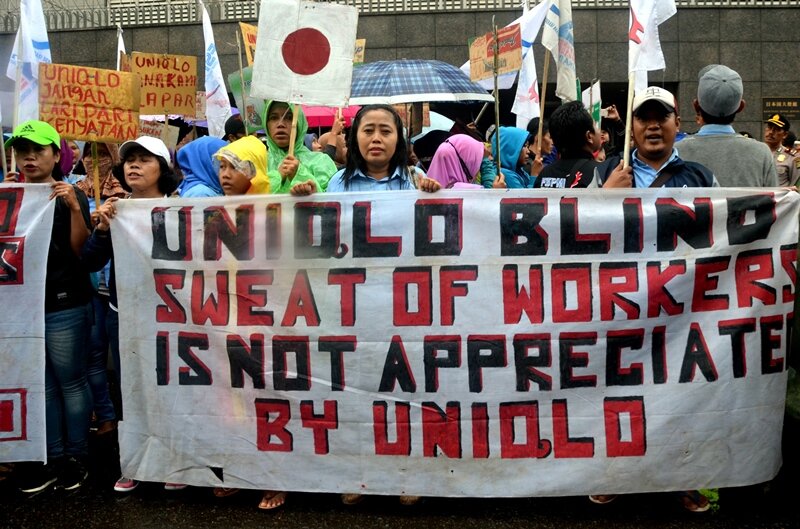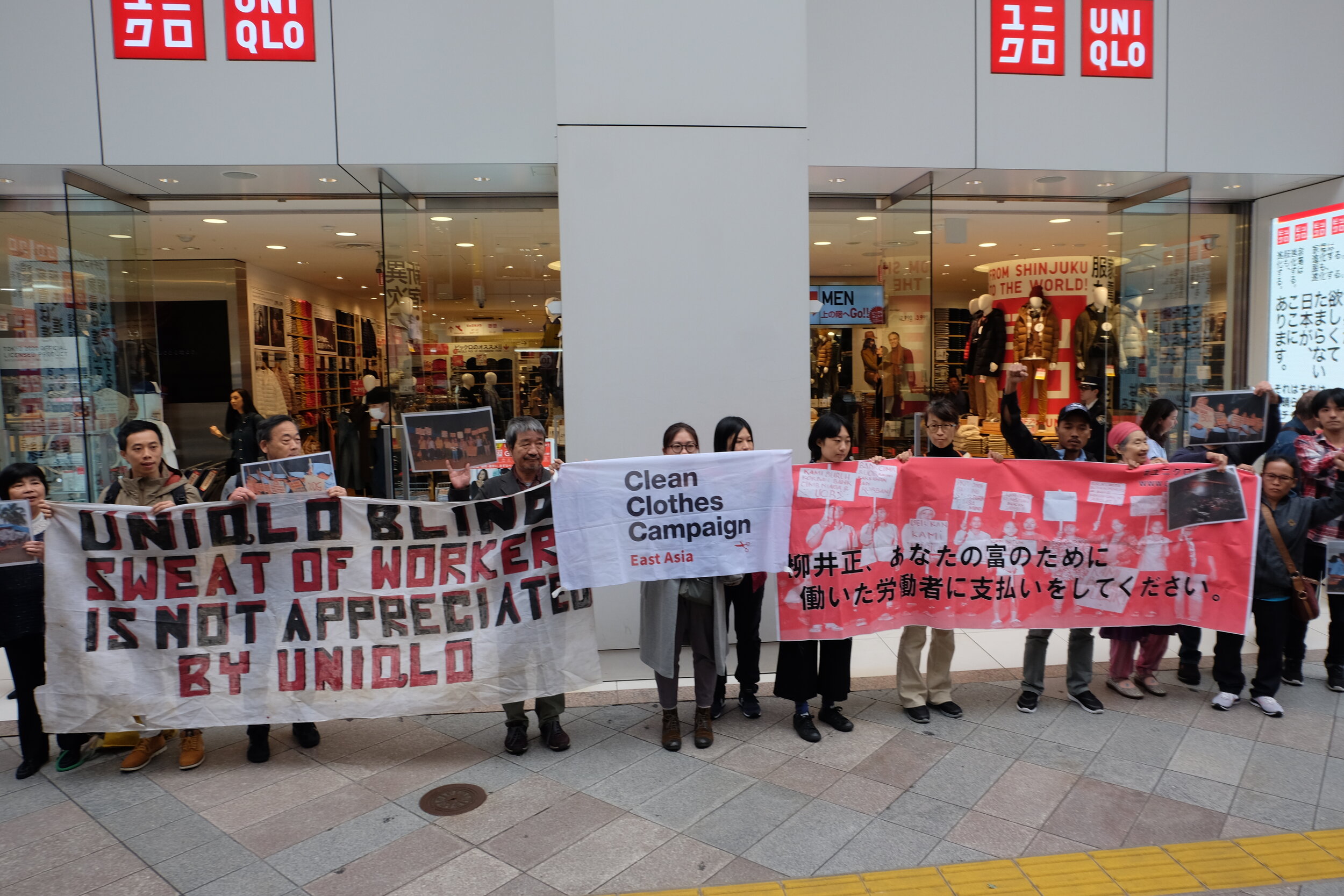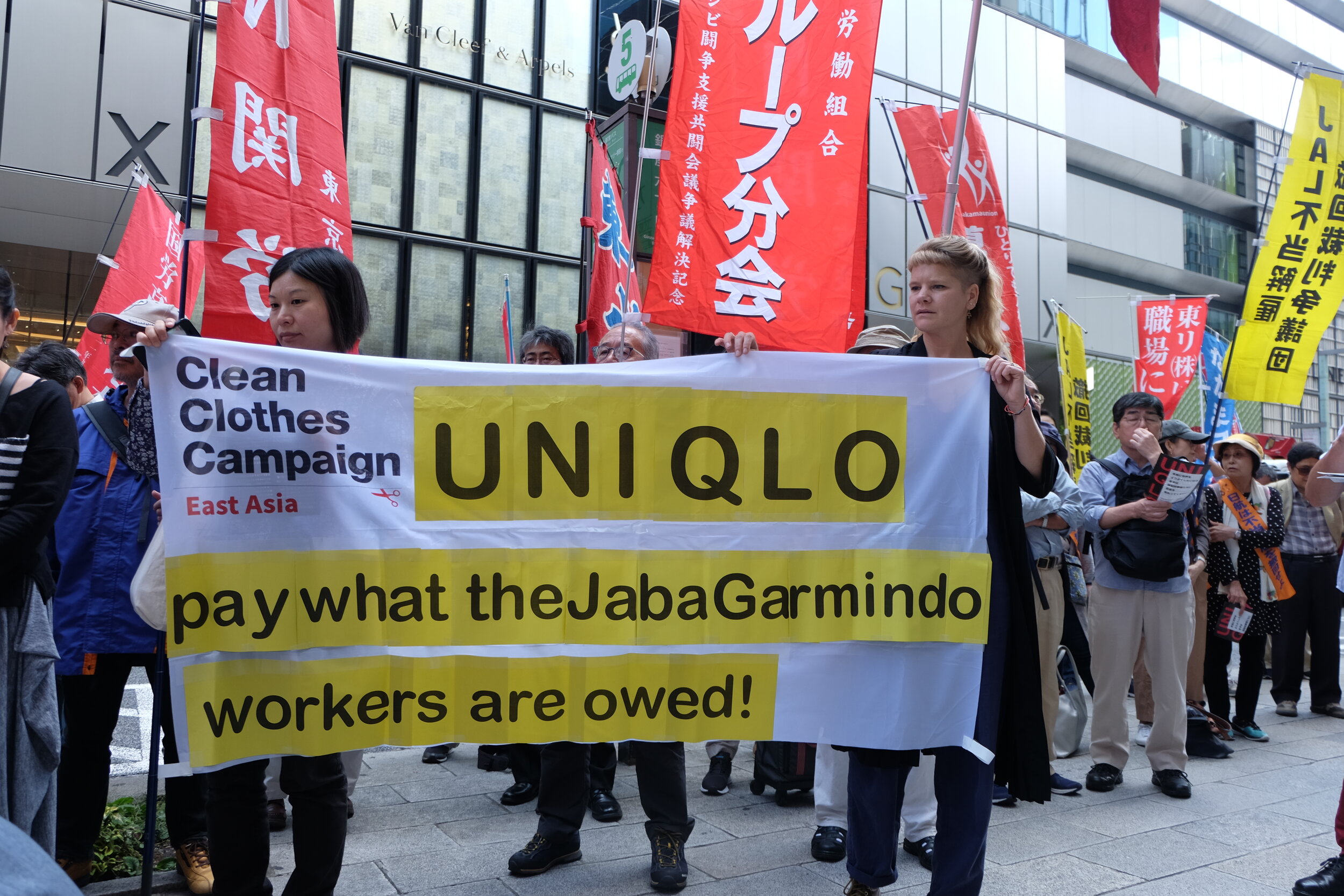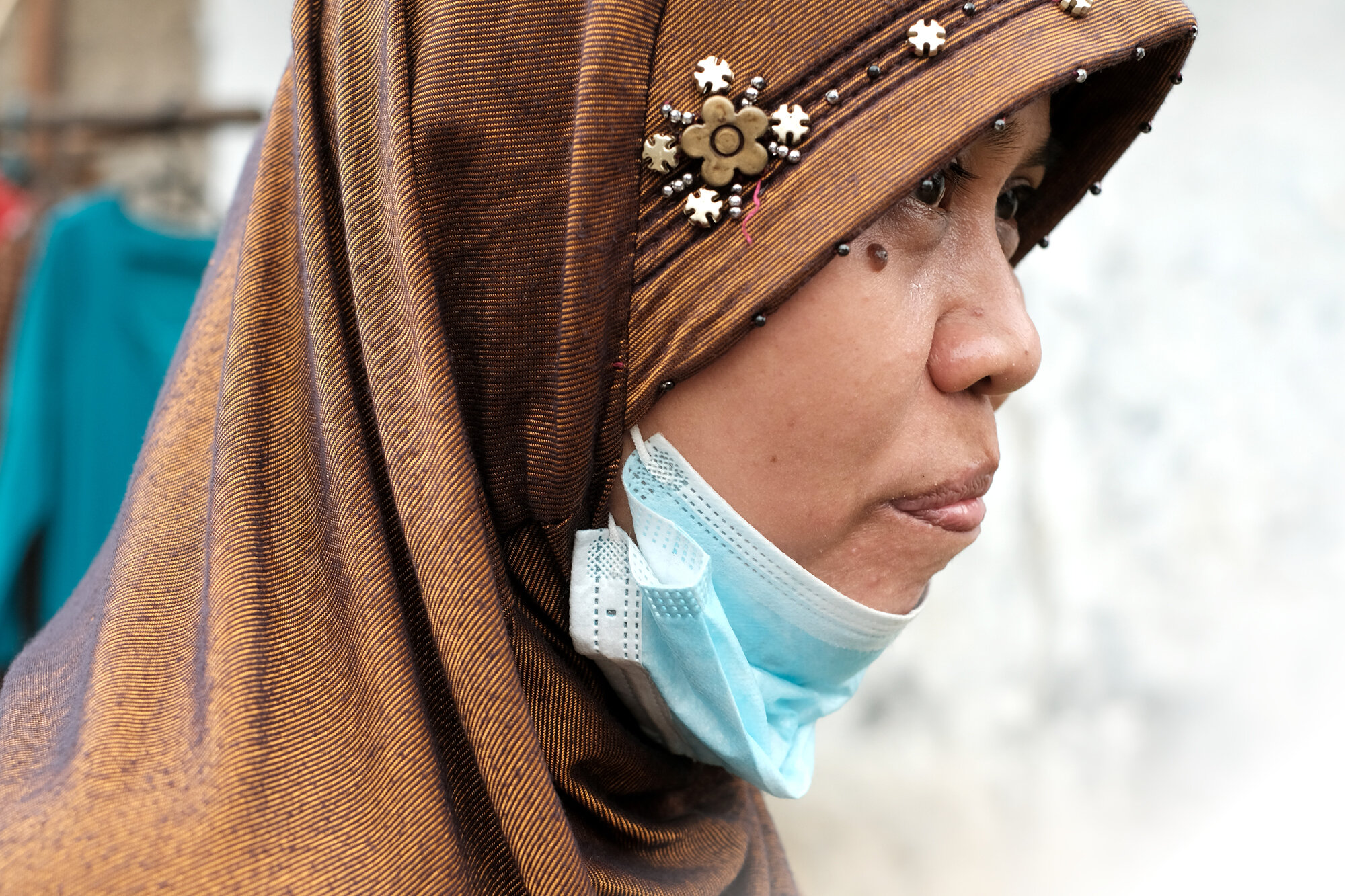
How to Steal Your Workers' Future, is a powerful portrayal of the long-term devastation that severance theft causes for garment workers and their families.
Two women speak for the first time on camera about their experiences after being laid off from factories they were once dependent on.
The film presents the contrasting stories of two garment workers in Indonesia:
Murni
Murni and her husband both worked at the Jaba Garmindo factory. In 2014, Uniqlo, a major buyer, pulled out of the factory and Jaba Garmindo's bankruptcy followed in 2015, as documented by the Worker Rights Consortium. Ever since, Murni and 2,000 of her coworkers have been demanding the US $5.5 million in severance pay they are legally-owed, accompanied by global campaigning by the Clean Clothes Campaign. Uniqlo, a brand worth US $9.2 billion, continues to deny any responsibility towards the garment workers and refuses to pay, even as Murni and other former Jaba Garmindo workers struggle to survive. Jack Wolfskin (part of giant hedge fund Blackstone Group at the time) refused to pay more than one half of 1 percent of the arrears.
Siti
Siti worked at the Kahoindah factory but lost her job when the factory closed in 2018. It took public reporting by the Worker Rights Consortium and a public campaign by a global coalition including United Students Against Sweatshops and the Clean Clothes Campaign that lasted months to push Nike to assume its agreed responsibility. In August 2019, Siti and her 2,000 coworkers finally received the US $4.5 million they were owed, the equivalent of seven months work, a life-changing amount. It is the largest amount won by garment workers in a single case of illegally denied severance.
“Globally, garment workers were robbed of at least half a billion dollars in legally owed severance during the first year of the pandemic alone—a figure that is only expected to rise.”
The stories of Siti and Murni are examples of an industry-wide problem that has grown exponentially since the start of the pandemic. Many fashion brands responded to COVID-19 by cancelling orders and demanding huge discounts for clothes already produced, causing factories to fall into financial difficulties or bankruptcy, leaving workers with nothing. Most of the risk was passed down to garment workers, those least able to carry it. Globally, garment workers were robbed of at least half a billion dollars in legally owed severance during the first year of the pandemic alone—a figure that is only expected to rise.
What you can do

This is urgent.
Systemic change is possible. Unions and labour rights organisations are calling upon brands to pay into a fund to ensure garment workers who lose their jobs en masse are never again left penniless as victims of severance theft.
Take action and together let’s end impunity for brands. Your voice can make a difference.
Host Your Own Screening
These guides are designed to help you use the short film How to Steal Your Workers’ Future to spark discussion and to push for lasting change in the global garment industry.
More Resources
Photo Gallery: Since the closure of the Jaba Garmindo factory in 2015, workers and campaigners have staged protests globally calling Uniqlo, s.Oliver, Jack Wolfskin and other brands producing there to pay up.
